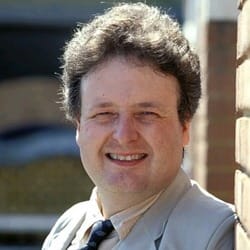A leading Cambridge nuclear energy specialist is asking what thought Japan’s nuclear authority gave to the ‘reasonably predictable’ possibility of an earthquake/tsunami combination, and says lessons must be learned from Japan’s experiences.
Dr William Nuttall, Senior Lecturer in Technology Policy at Cambridge Judge Business School and a prominent member of the Cambridge Nuclear Energy Centre, queries the risk assessment carried out as Japan embarked on its nuclear energy programme and warns it is sensible to grasp the opportunity to review plans for the future of nuclear energy in this country.
“In the UK we have the prospect of building one of 2 types of nuclear power plant. The designers of both types will have given enormous thought to ‘containment’ and ‘coolant accidents’. I think we have a certain level of comfort that there are designs for these very extreme scenarios.”
However, Dr Nuttall, is anxious that consideration is given to the older nuclear sites in this country.
“Japan’s Fukushima No.1 was an elderly plant. In learning lessons, as much consideration should be given to our own legacy units as is given to the units to be built.”
Dr Nuttall accepts that the earthquake and tsunami represented a massive incident with a subsequent tragic loss of life.
“It’s not a ‘double catastrophe’ because it stems from the same underlying geo-physical origin, but there’s a need to learn lessons here.”
Dr Nuttall feels there are issues around the safety culture, which should have ensured that “whatever the imaginable catastrophe, within reasonable limits to extreme catastrophe”, it should have been predicted given the region’s geological history.


